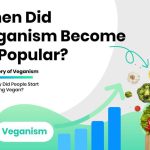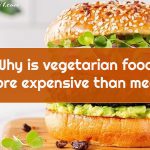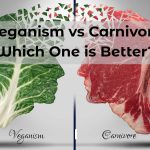If Everyone on Earth Suddenly Became Vegan, What Would Happen?
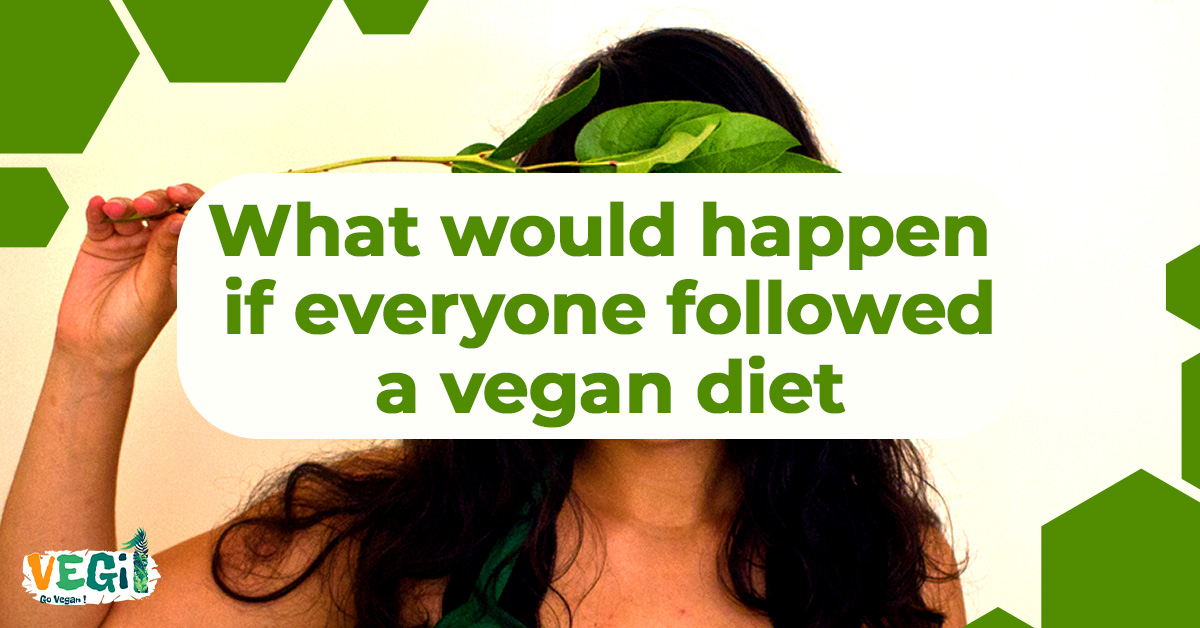
Imagine a world where every person over a night adapts to a vegan lifestyle, eliminating animal products from their diets.
This hypothetical scenario raises intriguing questions about the potential consequences and impacts on various aspects of our lives, including the environment, health, and economy.
How can following a vegan diet by Earth’s residents impact different aspects of life? If you have the same question and want to know its potential outcomes, why don’t you follow us?
So, let’s dive into the article to see “If Everyone on Earth Suddenly Became Vegan What Would Happen?”
In this article you will read:
Does the world overnight go vegan?
As a vegan, it is natural to aspire to a world nowhere animal-based products are produced. Consumed.
But we must remain optimistic; the world has already changed, including dietary shifts.
According to records, more people are becoming aware of the benefits of a vegan diet and adopting it for the rest of their lives.
As people adapt to a vegan diet, the demand for meat will decrease, and the food industry plans to substitute animal-based products with plant-based alternatives.
Without a doubt, we cannot expect the world to undergo such a massive transition shortly.
But let’s hypothesize a world without an omnibus consumer and examine the potential consequences.
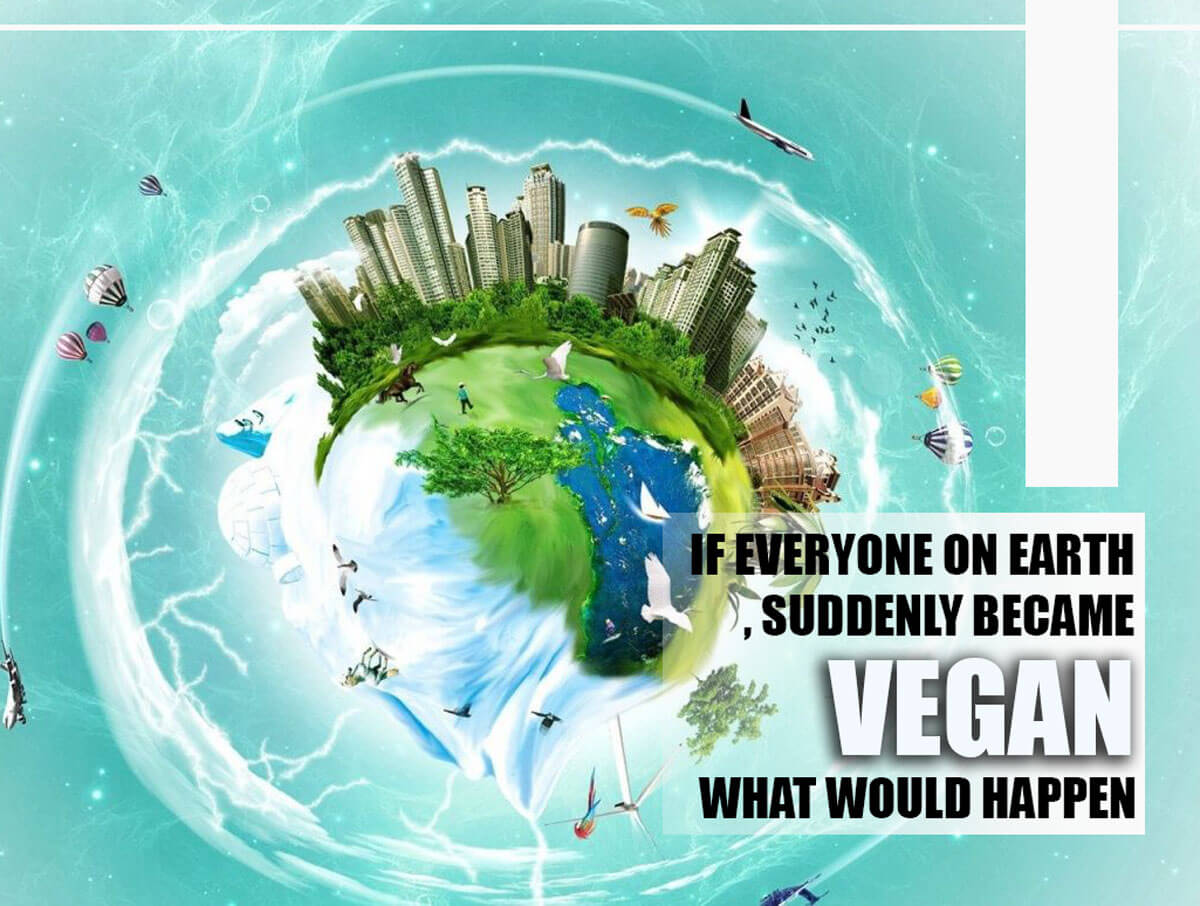
Can the adoption of a vegan lifestyle be the solution to global challenges?
It is a pleasant thought to imagine that widespread veganism could bring about a world characterized by love, compassion, and the absence of pollution and horrors, with climate change being reversed.
However, as you know, it is a single aspect of veganism. We need to go into the depth of this notion and its possibility.
Some numerous industries and sectors are interconnected and economically dependent on animals to some extent.
Therefore, sudden cessation of animal product consumption and usage by everyone could have various negative consequences.
But let’s hypothesize a world without an omnivore and examine the potential consequences in the rest of the article.
How could be a veganism world?
During this time, the concern about saving the world is rising as the climate crisis increases.
But can shifting to a vegan diet save the world?
When it comes to diet, the type of diet people choose can significantly impact various aspects of life.
Many outcomes are interconnected and can influence other factors, leading to changes in how they are perceived or experienced.
For instance, if the environment becomes cleaner due to dietary, it is more likely that there be a decrease in the number of people suffering from specific health issues.
Having healthy residents allows us to save the budget and put it into other fields of society, such as education and improving recreational facilities.
As a result, people will feel a significant transition in their life, including different aspects.
In the rest of the article, you can see the critical impacts of veganism on the world.
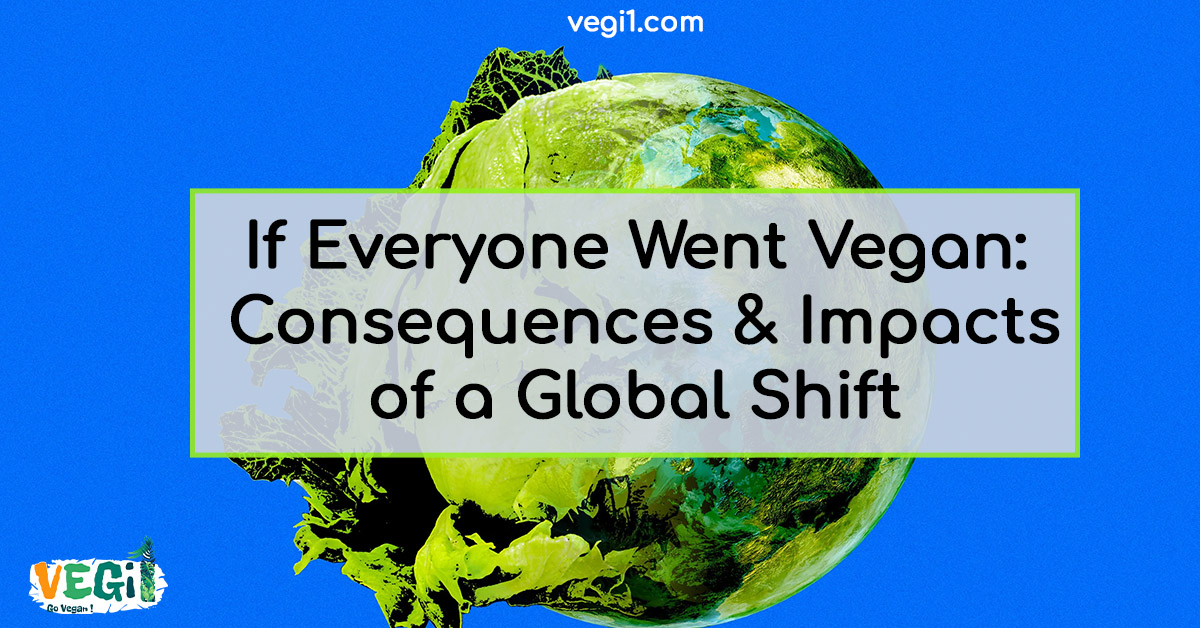
 Environmental Impact
Environmental Impact
One of the most significant effects of universal veganism would be the positive impact on the environment. Livestock farming significantly contributes to greenhouse gas emissions, deforestation, and water pollution.
The rate of carbon dioxide emissions from livestock and their byproducts is estimated to be around 32,000 million tons per year.
This contributes to the significant accumulation of heat-trapping gases in the atmosphere, leading to a rise in global temperatures.
Furthermore, these animals’ nitrous oxide release is even more significant, as it is 296 times more effective at trapping heat than carbon dioxide.
This exacerbates the complications and challenges faced by various species on Earth in their struggle to survive. This gas is produced by the cows’ digestive system, which includes a large amount.
By eliminating animal agriculture, we would significantly reduce our carbon and nitrous footprint, conserve water resources, and mitigate the destruction of natural habitats.
Ecosystem preservation and biodiversity would be enhanced, creating a more sustainable planet for future generations.
According to Un state’s comment, rearing livestock leads to various environmental issues, from minor to big ones.
 Health & Wellness
Health & Wellness
Following a vegan diet universally could have profound effects on global health.
According to studies who consume plant-based diets are less likely to suffer from chronic diseases such as heart disease, diabetes, and certain types of cancer than omnivores.
Since they are rich in nutrients, fibers, unsaturated fats, and antioxidants, which help boost overall health.
With the elimination of animal products, the consumption of nutrient-rich fruits, vegetables, and whole increase, providing individuals with a wide range of essential vitamins, minerals, and antioxidants.
Additionally, shifting to a vegan diet can balance the weight in society, improve digestion, and boost overall well-being.
As a result, the demand for animal-based products will decline, leading to a shift to healthy plant-based products.
The Impact of a Vegan Diet on Cholesterol Levels
The Role of Raw Vegan Foods in Improving Insulin Sensitivity & Blood Sugar Control
 Saving underwater life
Saving underwater life
One of the benefits of a veganism world that should not be overlooked is the potential for saving underwater life.
The fishing industry adversely affects marine ecosystems, leading to overfishing, habitat destruction, and bycatch of non-target species.
When people follow a vegan diet, the demand for seafood will decrease, and marine life will not experience pressure to produce out of their reproduction timeline.
Therefore, the fishing industry will not thrive, helping preserve and restore marine life.
Followed by eliminating seafood from the diet, delicate coral reefs, seagrass beds, and other underwater habitats that are essential for the survival of numerous marine species will be well protected.
Additionally, destructive fishing methods, such as bottom trawling, can be minimized as the demand for seafood decreases.
This practice causes extensive damage to the floor and disrupts the balance of marine ecosystems.
Furthermore, decreasing livestock and their byproducts, such as runoff of excess nutrients and antibiotics, can preserve water health. Having healthy and pollution-free water can guarantee the life of marine species.

The Global Impact of Universal Veganism: A Closer Look at the Environmental Consequences
 Food Security & Resource Allocation
Food Security & Resource Allocation
Shifting to veganism universally requires a global food production revolution and resource allocation. Animal agriculture requires vast land, water, and feed crops.
When plant-based products are replaced with animal-based products on a global scale, the problem of food scarcity will reduce, and those who suffer from a lack of food can take advantage of this transition.
Once animals do not occupy lands, they can be targeted for crop growth and cultivation to make crops for a growing population.
However, careful planning and investment in sustainable farming methods would be necessary to ensure adequate nutrition for all populations.
 Saving wildlife
Saving wildlife
Unfortunately, the hunting rate has not decreased over the years, even though people have access to various types of meat. Some hunters argue that the population will explode if they don’t hunt deer. However, this is only sometimes true.
Nowadays, practices such as breeding deer in captivity are being conducted to increase the deer population and save them from extinction. By halting hunting, nature can follow its natural cycle, and the deer population will balance out with their predators.
So, by adapting to veganism, hunting will reduce as people rely on vegan feeding rather than hunting endangered animals.
This approach will maintain the balance in the ecosystem, which ideally should not require any human intervention to preserve wildlife.
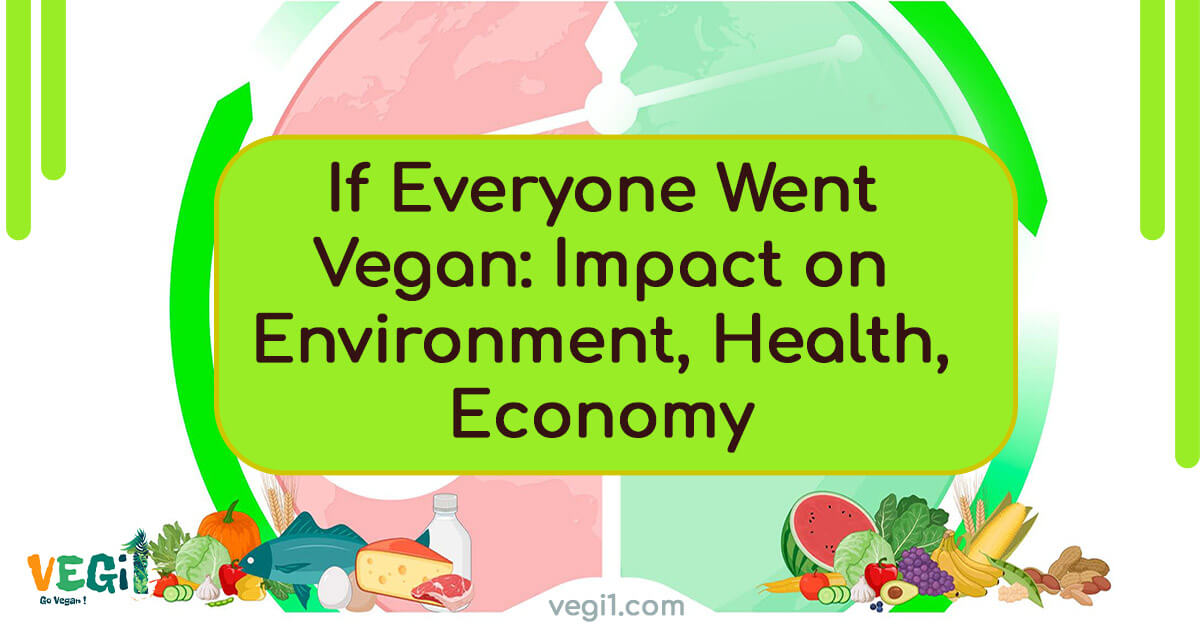
 Cultural & Social Implications
Cultural & Social Implications
In many ceremonies and traditional parties, such as Christmas night, animal-based products, primarily meat, are commonly seen, and this is not exclusive to the higher social classes. People with different budgets can purchase various animal-based products.
However, if they remove meat and animal-based products from their meals, the foundation of their ceremonies will change. They can introduce vegan options to their tables and host their guests with different ingredients that are not animal-based.
Although we cannot witness a global shift to veganism quickly, we can observe changes in how people value vegan food and their perspectives. Since people tend to mimic others’ behaviors, we expect to see a rise in veganism in society over the years.
 Decrease of pandemic diseases
Decrease of pandemic diseases
As you know, some of the pandemic diseases translate from animals to humans. What if humans change the origin of their feeding resources?
The transmission of diseases from animals to humans is more likely to occur where humans come into close contact with animals, such as in factory farms or wet markets.
When people restrict their food resources to plants, they will be less exposed to potential sources of animal diseases, which can protect them from affecting by pandemic diseases.
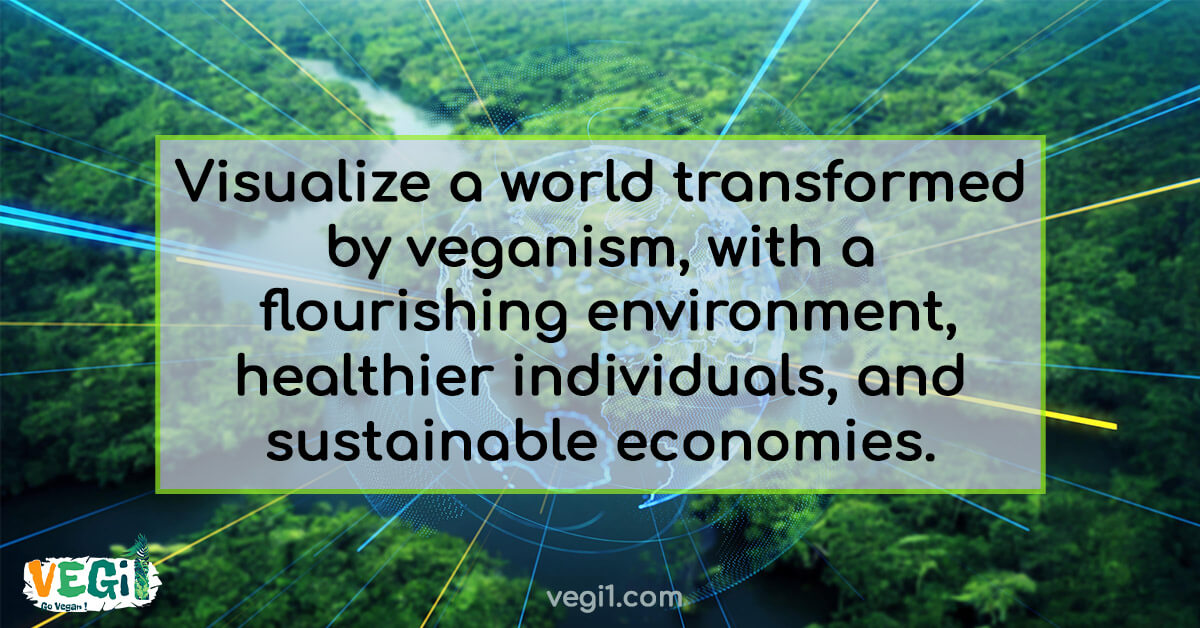
 Reduction of antibiotic resistance
Reduction of antibiotic resistance
Because of the growing demand for meat in the world, intensive farming practices are applied, and, in this case, to prevent disease in crowded conditions, animal rearers highly rely on antibiotics.
The widespread use of antibiotics in animal farming significantly contributes to antibiotic resistance. This issue has increased by 8% from 2020 to 2030, mainly due to the growing demand for meat.
As people become resistant to antibiotics, they require more potent antibiotics for treatment, which can have adverse health effects. In a vegan world, the reliance on such intensive antibiotics could be reduced, making it easier for doctors to treat their patients effectively.
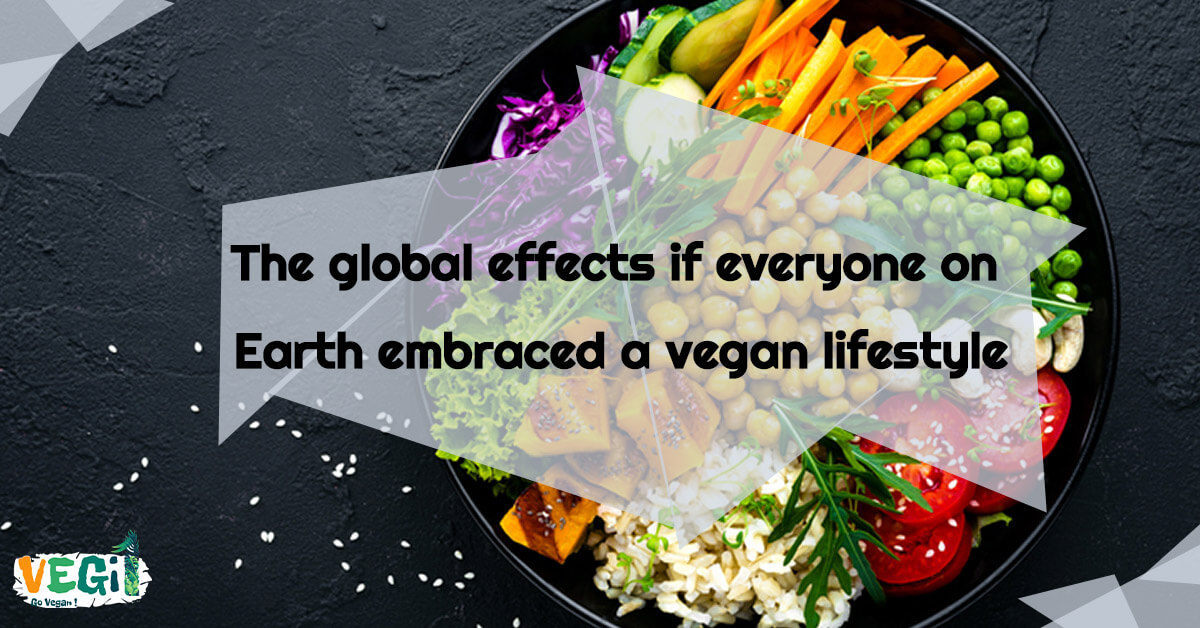
![]() Economic implications
Economic implications
The economic implication of global veganism is vast and can be affected by different aspects, including:
-
Health care cost
As more people will be intended to eat plant-based products, the prevalence of most chronic diseases, such as high blood pressure, type 2 diabetes, and certain cancers, will highly experience decrease. This helps save health care costs and decrease insurance expenditures in society.
-
Environmental Costs
As mentioned above, rearing animals contribute to environmental issues such as greenhouse gas emissions, deforestation, and water pollution.
Adapting to veganism could massively reduce these environmental costs, potentially leading to economic savings in climate change mitigation, water treatment, and reforestation.
-
Changes in Food Prices
The demand for plant-based products would increase, potentially driving up prices in the short term. However, prices may stabilize or decrease as the supply matches the demand.
-
Economic Inequality
The transition to veganism could exacerbate economic inequality if not appropriately managed. For instance, farmers who rely on livestock for their livelihood could be disproportionately affected.
So, they should be given alternative job positions to make a living.
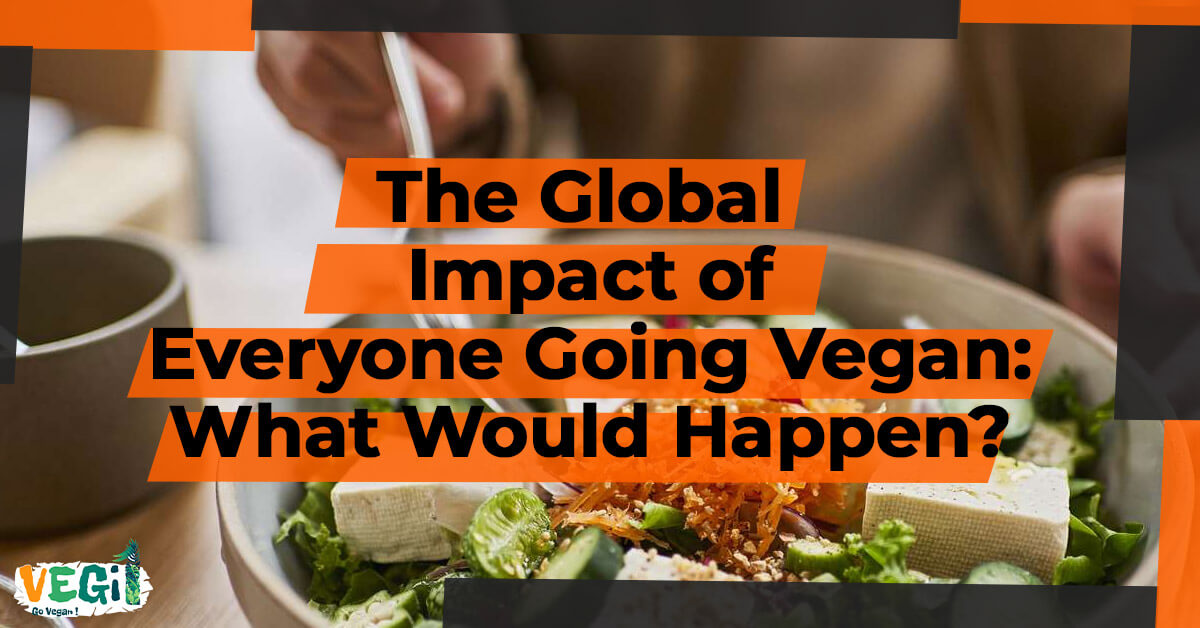
 Low demands for using animals for research and clothes and entertainment
Low demands for using animals for research and clothes and entertainment
As the demand for animal products decreases, the number of animals used for clothing, entertainment, and experiments will also decrease.
This includes chimpanzees in research, sheep and silkworms for wool and silk, and captured animals for aquarium shows. Existing zoos and aquariums may transition into sanctuaries, and if the world goes vegan gradually, animals in captivity will be phased out over time.
Can global shifting to veganism lead to war?
Despite the thought of people who think shifting to instant veganism can lead to food scarcity worldwide. And it is more likely that nations plan new wars due to food scarcity.
The relationship between veganism, food scarcity, and conflicts is complex and influenced by various factors.
We can reduce the strain on food resources by a well-planned transition to veganism and by providing suitable agriculture practices, reducing food waste.
What would be
How to Become Vegan step by step
The fate of farm animals if the world went vegan?
If the world went vegan, the fate of farm animals could be different depending on the circumstances and society’s priorities. Here are a few possible scenarios:
- As the demand for animal products declines, farmers may gradually reduce their livestock populations. So, it is not required to breed new animals; the existing animals can continue their lives. As a result, the number of farm animals would decrease over time.
- Some farm animals may be transported to animal sanctuaries or rescue organizations. These organizations provide a safe environment for animals rescued from the farming industry.
- The farmlands can be used for other purposes, such as agriculture, growing crops, or producing plant-based alternatives. Therefore, we would have enough alternative food resources.
- In some cases, some animals can be left in nature to continue their living. Most farm animals don’t have natural predators and can live for a long time in nature.
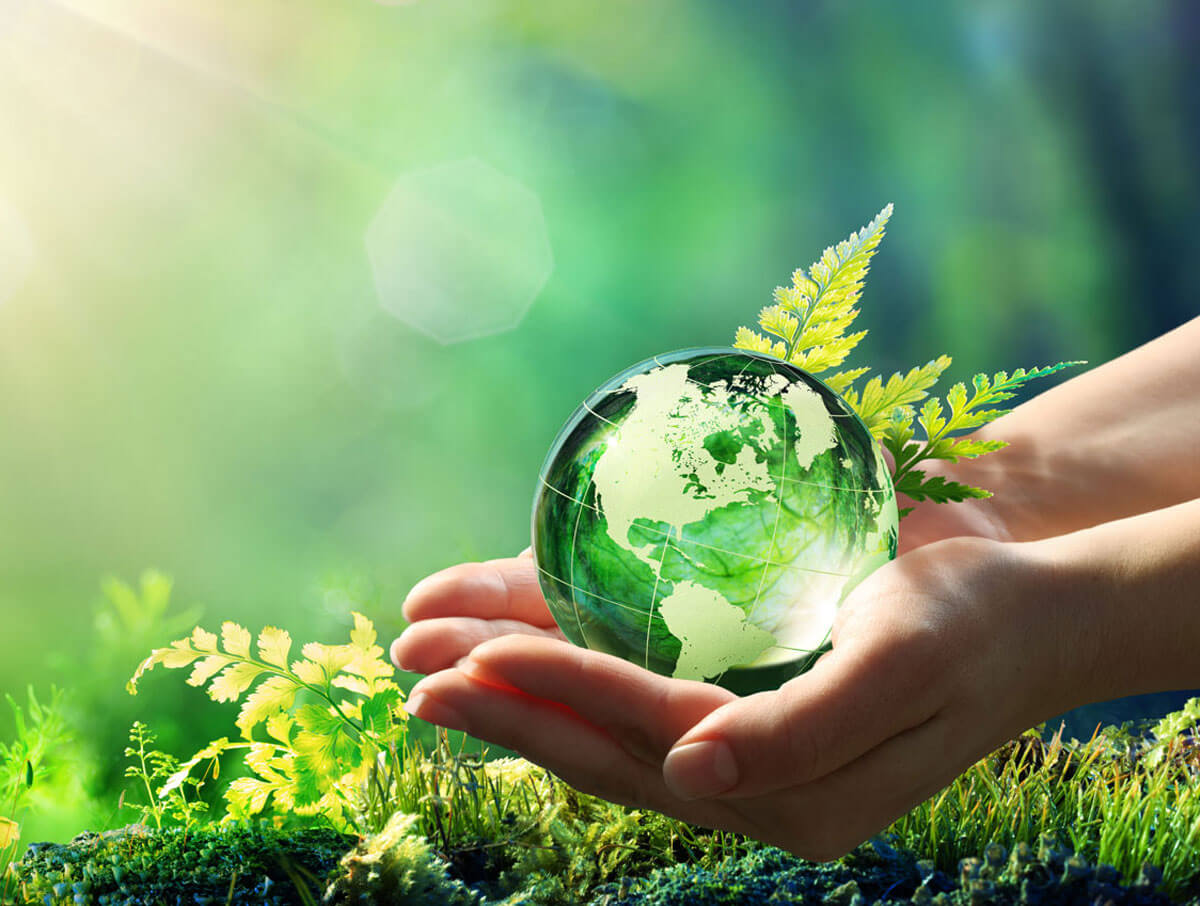
The last words
While the idea of everyone on Earth becoming vegan quickly can seem far-fetched, contemplating the potential consequences of such a shift can provide valuable insights into the benefits and challenges of adopting a plant-based lifestyle.
Whether or not this scenario comes true, the discussion surrounding veganism encourages us to reflect on our choices and their impact on the planet and future generations.
By reading this article, you get an in-depth view of the future of global veganism.
What do you wish to see by shifting the world to veganism?
In your idea, what is the answer to the “If Everyone on Earth Suddenly Became Vegan What Would Happen?” question?
Please share with us your thought in the comment section.




